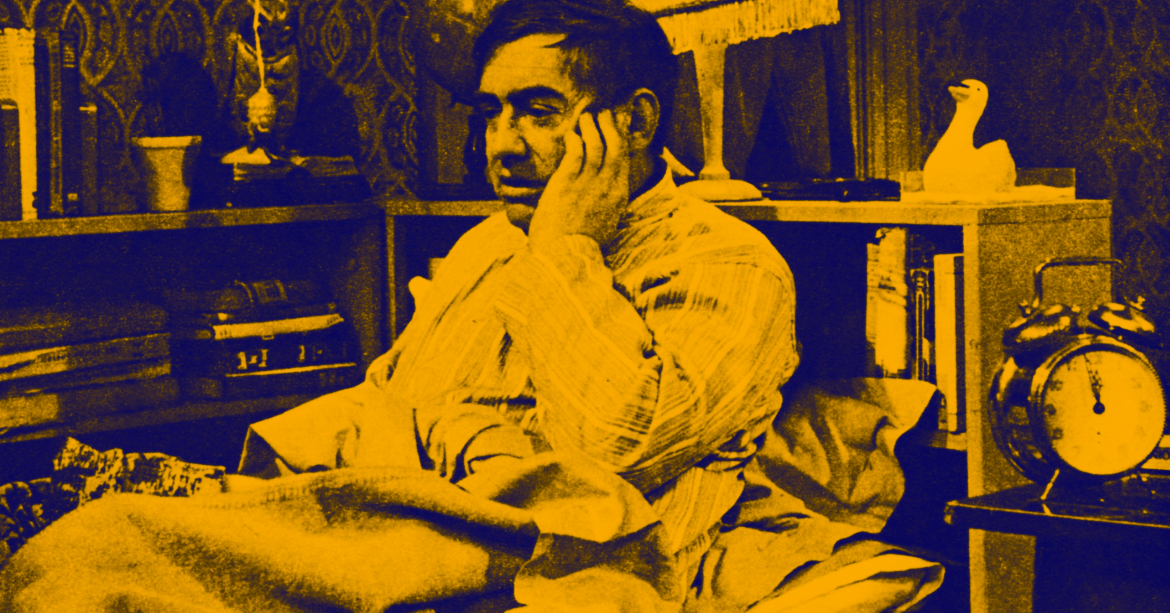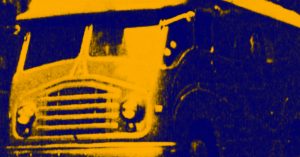Hancock
Tony Hancock’s new series for ATV premieres in 1963

Gone was East Cheam; gone was that bedsitter in the Earls Court district of London. This was the series which put the “H” in Hancock with a vengeance.
from the ATV Television Show Book 1963

If the critics didn’t welcome the change with unreserved rapture and if some faithful fans grumbled unnecessarily at the passing of a hero, there is no denying that it took courage and a sense of adventure for Tony Hancock to try something new, to experiment, in the series which he made for ATV this spring.
Tony went back to his early, radio days for the all-important material on which he was to build the new, highly civilised, middle-class Hancock — with its capital “H”. Godfrey Harrison had written the scripts on which the Hancock reputation was firmly founded. So, as Tony looked around for a new image, what better than to go right back to the source of his first inspiration and once again team up with the man who had committed the right words and lines to paper, knowing that the Hancock talent for putting them across would ensure the true marriage of thought and presentation.
No more the faded city gent’s outfit. Put away were the rollneck sweater, tight-fitting trousers and the medal on a thin artificial-gold chain. Bring out, instead, the badges of respectability: the sheepskin jacket, the Robin Hood style hat. Thus attired, Tony Hancock ventured into his new series. And with a new series came a new setting for the inquisitive, audacious Hancock.

Focal point of all his adventures was the doorway of the local bank, a humdrum, unexciting place in itself; but with Hancock around anything could happen — and it usually did.
It was from here, for instance, that “The Lad” became ensnared in a drama which had him rubbing shoulders with the anonymous Big Brass of M.I.5, who, glad of any excuse to see this inveterate nosey-parker out of their way, invented codes, passwords, identification signs and secret messages which had Tony completely confused as he found himself caught up with a Government department kitchen staff, a queue waiting for a bus and the inevitable “overseas agent”.
No amount of red herrings or contrived clues could put Hancock off once the smell of middle-class responsibility was wafting around his nostrils. He just had to succeed; see through to the bitter end the task which he felt he must carry out — invariably ending in disaster and humiliation. For such is the character of Hancock on the screen, and no matter the elevation in his social standing he is still doomed to failure and ridicule — and to our sympathy in the process.
Who, for instance, can forget his attempts to bring to a “This is Your Life”-style story his own individualistic contribution? Hancock had to make his entry to the programme in the grand style — and even if he had nothing really worthwhile to say he was not to be denied the opportunity to make an impression. This he did — to the embarrassment of the subject of the programme and to ATV question-master Shaw Taylor, who played the compere in the programme.
Hancock, the civic-minded citizen, bungled the job of helping the police when the local bank — yes, that very same one where he seemed to spend so much time annoying and lording it over the bearded newspaper vendor who had made his pitch the entrance to the bank — was robbed. Ever hogging the limelight, ever bigger than life, once again Hancock was in trouble, this time with the police, as well as the robber who had done the job.
Big-headed, pompous, naive… Hancock has been called them all. And he earned such descriptions when he got himself involved in helping a casual friend impress his wife with his ability as a “do-it-vourself” exponent; when he took on the job of a professional “escort” to visiting women who wanted a night on the town; when he fell for the smooth talk of an experimental film producer who saw in our Tony the answer to his dreams of a new face for his new-wave movie — with Tony definitely on the receiving end of anything but bouquets from the film critics. His reward was face-slapping, insults from a conscientious house-owner and torment at the hands of a young starlet and a very experienced film actress.

Hancock aping his betters is always an intriguing sight. With the inevitable props of dressing-gown, cigarette-holder and silk kerchief, here was vintage Hancock as he assumed the role of author and comedy script writer. But always the results were the same: disaster, disappointment and a sense of disenchantment.
But only for the moment. For such is the stuff of which Hancock is made that in his mirroring of life he is like a rubber ball: down one moment, up the next, always ready for the next adventure, ever prepared to stick his nose in business which is not his own — invariably with disastrous results. And for those very same reasons he has become a character, a special friend and accomplice — even a national institution.
But behind the facade of buffoon and busybody lies the professional approach of the perfectionist. Too much rehearsal, too much interpretation of the slightest act or situation, is no problem to Tony Hancock. Alan Tarrant, who produced Tony in his programmes for ATV, tells of many hours spent after the official time for rehearsal had ended while Hancock dissected some minute aspect of the plot or action. Time, which saw the night before pass into the early hours of the next morning, went by unnoticed — and rehearsal hour was drawing nearer and nearer. Overflowing ashtrays told of hours of concentration spent in deciding how a particular scene should be played, how a look or word should be used to provide the best effect… and when rehearsal was called, seemingly only minutes later in a rehearsal room at ATV’s Elstree Studio Centre, who was the freshest, most enthusiastic member of the cast on call? Why, Hancock, of course.
“The man thrives on hard work”, says Tarrant. He also confirms the belief held widely in show-business circles that Tony Hancock insists on having “professionals” around him — to work with him and with whom he can work. Hancock saw such an assembly of “pro’s”, for in the programmes which came to ITV screens regularly at 8.30 each Thursday evening for three months such established artistes as Dennis Price, John le Mesurier, Maggie Fitzgibbon, Harry Towb, Edwin Richfield, Diane Clair, Hazel Hughes, Brian Wilde, Thomas Heathcote, Edward
Chapman, Wilfrid Lawson, Judith Stott, Denholm Elliott, Peter Vaughan, Kenneth Griffith, Mario Fabrizi, were on hand to lend their professionalism and know-how to the situations and predicaments in which Tony found himself.

But always the impact was that left by Hancock himself—and who would have it otherwise? For his is an impact of individuality, which reflects the “little man” in all the millions who watched his on-screen activities — unsuccessful and slapped-down though they may have been — and which attracted our affection and recognition: for here, surely, is a kindred spirit.
Hancock is unique.
About the author
Joint editors of the Purnell Television Show Books and associated titles




